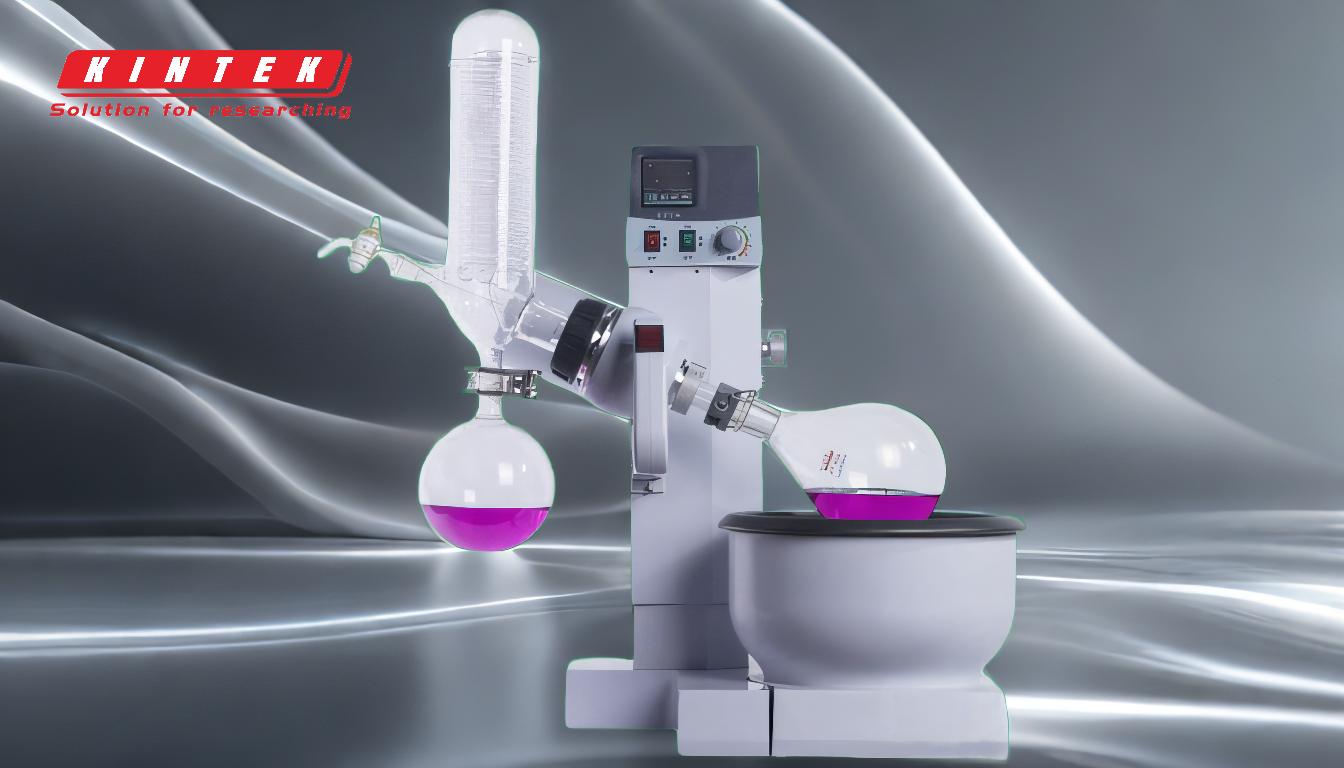A rotary evaporator and distillation are both techniques used to separate components in a mixture, but they are not the same. The primary distinction lies in their purpose, process, and what is retained after the procedure. Distillation is typically used to separate and collect the distillate (the condensed vapor), often focusing on purifying liquids like alcohol or water. In contrast, rotary evaporation is designed to remove solvents under reduced pressure, retaining the concentrated residue in the original flask. Rotary evaporation is gentler, uses vacuum pressure to lower boiling points, and is ideal for solvent removal without damaging heat-sensitive compounds.
Key Points Explained:

-
Purpose and Outcome:
- Distillation: The goal is to separate and collect the distillate (the condensed vapor). This is commonly used in processes like purifying alcohol or water, where the distillate is the desired product.
- Rotary Evaporation: The goal is to remove solvents from a mixture, leaving behind a concentrated residue in the original flask. This is often used in laboratories to isolate compounds or concentrate solutions.
-
Process Mechanics:
- Distillation: Involves heating a mixture to its boiling point, causing the more volatile component to vaporize. The vapor is then condensed back into a liquid (distillate) and collected.
- Rotary Evaporation: Uses a vacuum to lower the pressure, which reduces the boiling point of the solvent. The mixture is rotated in a flask to increase the surface area, allowing the solvent to evaporate at a lower temperature. The solvent is then condensed and collected separately, leaving the residue behind.
-
Retained Component:
- Distillation: The distillate (the condensed vapor) is the primary product retained and collected.
- Rotary Evaporation: The residue (the concentrated compound) is retained in the original flask, while the solvent is removed and collected separately.
-
Applications:
- Distillation: Commonly used in industries like beverage production (e.g., alcohol distillation) and water purification.
- Rotary Evaporation: Widely used in laboratories for solvent removal, concentration of samples, and isolation of compounds, especially for heat-sensitive materials.
-
Advantages of Rotary Evaporation:
- Gentler Process: By using reduced pressure, rotary evaporation allows solvents to evaporate at lower temperatures, minimizing the risk of degrading heat-sensitive compounds.
- Efficiency: The rotation of the flask increases the surface area, speeding up the evaporation process.
- Precision: Ideal for removing low-boiling solvents and concentrating non-volatile compounds without oxidation or contamination.
In summary, while both distillation and rotary evaporation are separation techniques, they serve different purposes and operate under different conditions. Rotary evaporation is specifically tailored for solvent removal and concentration of compounds, whereas distillation is focused on collecting purified distillates. Understanding these differences is crucial for selecting the appropriate method based on the desired outcome and the nature of the materials being processed.
Summary Table:
| Aspect | Distillation | Rotary Evaporation |
|---|---|---|
| Purpose | Separate and collect the distillate (condensed vapor) | Remove solvents, leaving concentrated residue |
| Process | Heating to boiling point, vaporizing and condensing the distillate | Uses vacuum pressure and rotation to evaporate solvents at lower temperatures |
| Retained Component | Distillate (condensed vapor) | Residue (concentrated compound) |
| Applications | Purifying liquids (e.g., alcohol, water) | Solvent removal, sample concentration, and isolation of heat-sensitive compounds |
| Advantages | Ideal for collecting purified distillates | Gentle, efficient, and precise for heat-sensitive materials |
Need help choosing the right separation technique for your lab? Contact our experts today for personalized guidance!









